Copyright Policy
Copyright Policy
Copyright and Your oe studios Submission
Copyright can be a confusing territory for many people. In many cases the natural confusion over the sometimes varied circumstances surrounding copyright will lead people to rely on rumor or myth more often than the actual law which naturally confuses the matter even more.
In this document we will attempt to eliminate some of the confusion and counter many of the myths surrounding copyright and to present clearly the oe studios policies and practices with regard to copyright. The availability of this document should not be construed as rendering legal or other professional advice, and this document is not a substitute for the advice of an attorney. If you require legal advice, you should seek the services of a qualified attorney.
How do I get Copyright?
Under most national laws and international copyright treaties you receive a copyright automatically in any original work as you make it. Registration may be required to exercise some rights, like commencing a lawsuit. Copyright does NOT protect ideas. Copyright protects the expression of ideas or the ways in which an idea is materially placed or expressed in the work.
What is Copyright Infringement?
To simplify this question, copyright infringement occurs when you do certain things with a creative work which someone else produced without first getting the proper permission.
Some examples of copyright infringement (this is only a partial listing) can include:
· Placing someone else's photograph or creative work online without proper permission.
· Using a creative work commercially without permission.
· Adapting someone else's creative work found in one medium to another medium, such as making a book into a movie or a photograph into a painting.
· Modifying or editing a creative work without proper permission.
What Sort of Things are Copyrighted?
The easy answer to this question is that just about any creative work that is less than 150 years old you might find should be considered copyrighted by default.
A work is not required to have a copyright statement printed on it or near it in order to be considered copyrighted so do not assume that the work is unprotected simply because you cannot see a notice written anywhere.
Also do not confuse the fact that a work is publicly available with the idea that it is in the public domain or free for use. Being easy to find on the internet does not affect a work's copyrighted status.
There are many exceptions to the 150 year guideline, but you are best advised to obtain legal advice from an expert if you intend to rely on the possibility that a modern work is not copyrighted.
Some Cautions
· In most cases it does not matter how much of the material you have used, whether it's a single frame, a few moments of audio, a short clip of video or any other sampling it's still considered to be protected by copyright and you still require the owner's permission for use.
· It doesn't matter how you obtained the material, it's still considered copyrighted and you still need permission.
· It doesn't matter whether or not you've credited the proper owner, it's still considered copyrighted and you still need permission.
· It doesn't matter if you are not selling it or making a profit, it's still considered copyrighted and you still need permission.
· It doesn't matter if you can find other people using things without permission, it's still considered copyrighted and you still need permission.
· It doesn't matter if you've edited it a little bit or made a few alterations, if it's recognizable it's still considered copyrighted and you still need permission.
· Read licenses carefully to understand the type of permission they provide.
What about "Fair Use"
"Fair Use" is the notion that some public and private uses of copyrighted works should not require the permission of a copyright owner. These circumstances are very limited, complex to analyze under the law and require the help of expert advice from a lawyer. We recommend you talk to your own lawyer if you want to know more about fair use as it applies to the work you are doing. If it turns out that it isn't fair use, you may be liable for very serious money damages.
If you take my work down am I protected from a lawsuit?
No. Even if oe studios takes an infringing work down, you may still be responsible for very significant damages if the copyright owner decides to sue you.
Notification of Copyright Infringement
Instructions for Copyright Owners
This section contains the formal requirements of the Copyright Act with respect to the rights of copyright owners whose content appears on oe studios without authorization and instruction to copyright owners.
1. A physical or electronic signature of the copyright owner or of a person authorized to act on behalf of the owner of an exclusive right that is allegedly infringed.
2. Identification of the copyrighted work claimed to have been infringed, or, if multiple copyrighted works at a single online site are covered by a single notification, a representative list of such works at that site.
3. Identification of the material that is claimed to be infringing or to be the subject of infringing activity and that is to be removed or access to which is to be disabled, and information reasonably sufficient to permit the service provider to locate the material. In this regard please provide URLs when you identify the location of the material.
4. Information reasonably sufficient to permit the service provider to contact the complaining party, such as an address, telephone number, and, if available, an electronic mail address at which the complaining party may be contacted.
5. A statement that the complaining party has a good faith belief that use of the material in the manner complained of is not authorized by the copyright owner, its agent, or the law.
6. A statement that the information in the notification is accurate, and under penalty of perjury, that the complaining party is authorized to act on behalf of the owner of an exclusive right that is allegedly infringed.




